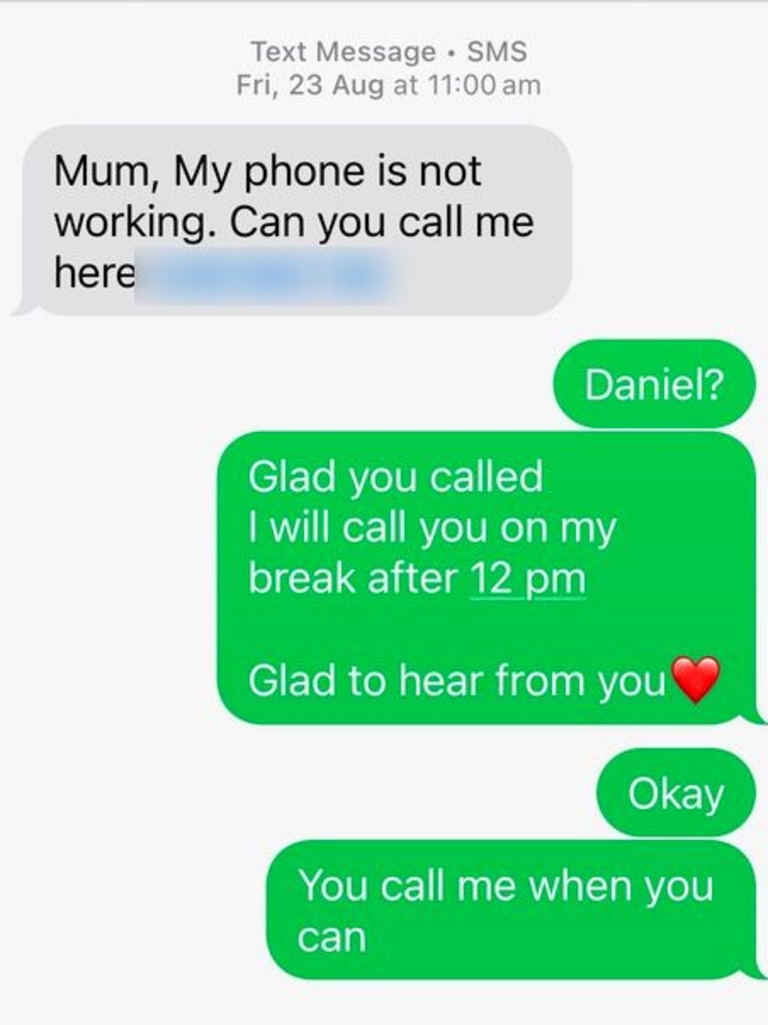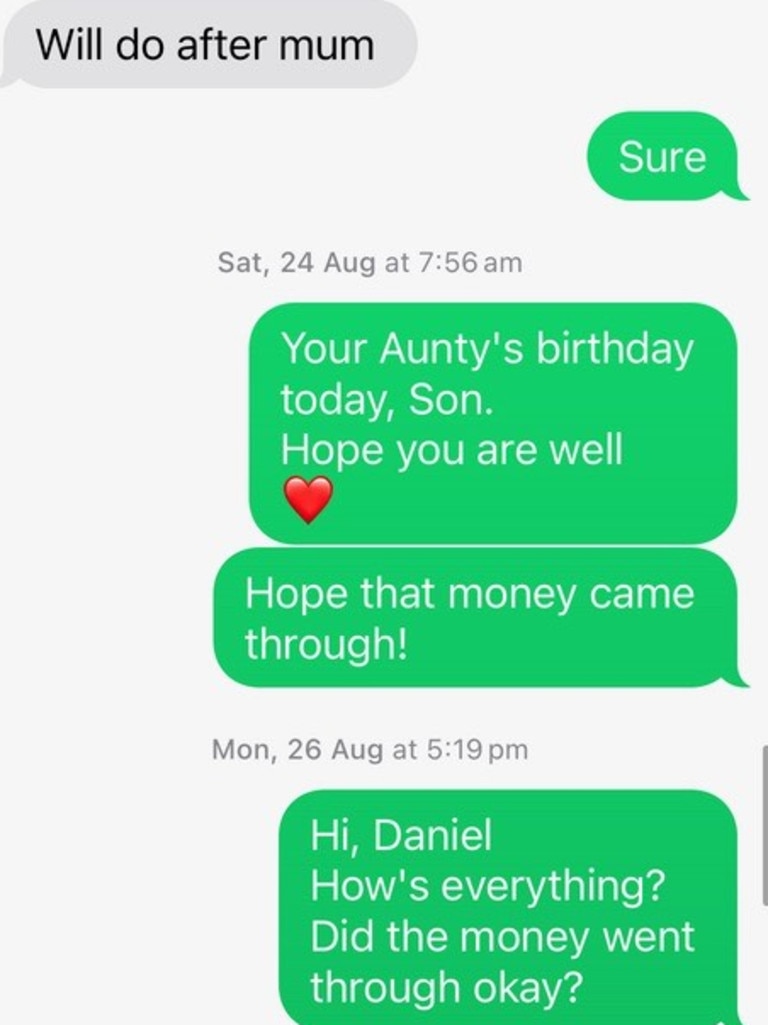Estranged mother and son lose thousands to scammers
An estranged Aussie mum hadn’t spoken to her son in years when she embraced him back into her life — but one question she asked revealed a chilling problem.
An estranged mum and son were devastated to learn they had been scammed out of thousands of dollars – after fraudsters played up on their strained relationship.
Danny Lee, 25, found out earlier this month, after reconnecting with his mother for the first time in years, that she had sent $4000 to a scammer wrongly believing it was going to him.
The aspiring professional dancer, from Brisbane said his mother fell for the ‘Hey mum’ scam sweeping through Australia in August, because of her “desperation” to see her son.
But in a disturbing twist, to make sure it was him, the worried mother called him – and said scammers had replicated his voice on the other end.
They have launched a GoFundMe to recoup their losses right before Christmas.
“Throughout most of my life, we’ve had misunderstandings with each other,” Mr Lee said.
“The hardships we were facing, constant arguments – it got to a point where I unfortunately had to leave when I was 18.”
Since then, Mr Lee said he and his mother had made “a few attempts” to rekindle their relationship but until now he hadn’t spoken to her since 2022.


In October, Mr Lee got a message from his mum’s partner to let him know they were putting down Ginger, the family cat he had grown up with.
He raced over to say goodbye to the beloved pet, who had been in his life for 24 years.
“I saw my mum for the first time, I had a bit of a go at her,” he said.
When the conversation cooled, his mother brought up that she was glad she had sent him money.
Mr Lee was immediately alarmed.
“I said ‘mum I’ve never asked you for money’. I’ve never been that guy,” Mr Lee said.
“She was pretty insistent she did. She said she even called me, she said it was me on the phone.”
As he pieced it together, the horror sunk in.
Mr Lee isn’t sure if scammers used some kind of artificial intelligence to manipulate his voice or if it was simply because his mum hadn’t heard him speak in so long.
The ‘hey mum’ scam has been around for several years and since this year there has been a rise in reports that artificial intelligence is being used to impersonate people.
Have you been the victim of a scam? Get in touch | alex.turner-cohen@news.com.au

Mr Lee has a somewhat large presence online, with more than 127,000 followers from posting dance videos. He wonders if this is how scammers might have been able to target him.
He works in hospitality by night to build up money to travel and compete professionally with his unique style of dancing.
Things have been especially tough lately, having been injured at work and losing his job. He said the sad part is that the $4000 could have gone a long way for both he and his mum.
He especially feels bad berating his mother while she believed he had borrowed money off her and never paid her back.
After exhausting their options, they launched a GoFundMe earlier this month.


The ‘Hey mum’ ‘Hey dad’ first hit Australians in 2022, fast becoming one of the most common and lucrative scams.
In its first year, it cost 11,000 victims a whopping total of $7.2 million.
Then at the beginning of this year, the scam got more sophisticated, with reports of scammers using AI to impersonate the children of their victims.
Between September and November this year, Scamwatch received 931 reports about “Hi mum/Hi dad” scams.
The total reported losses reached $225,000.
Scamwatch was unable to provide news.com.au with the cumulative amount of money lost since the scam started.
The scam body warned that the latest ‘hey mum/hey dad’ scam involves the fraudsters claiming to have renewed their mobile plan, as a method to get victims to respond to the phone number provided in an email.
Texts might now read: “Morning Mum, I’m currently on my laptop as I’ve renewed my mobile plan with phone provider, so my new number is 04XXXXXX can you please pop me a quick text message so I can save your details please cheers.”
Australians are warned to be vigilant.
alex.turner-cohen@news.com.au




